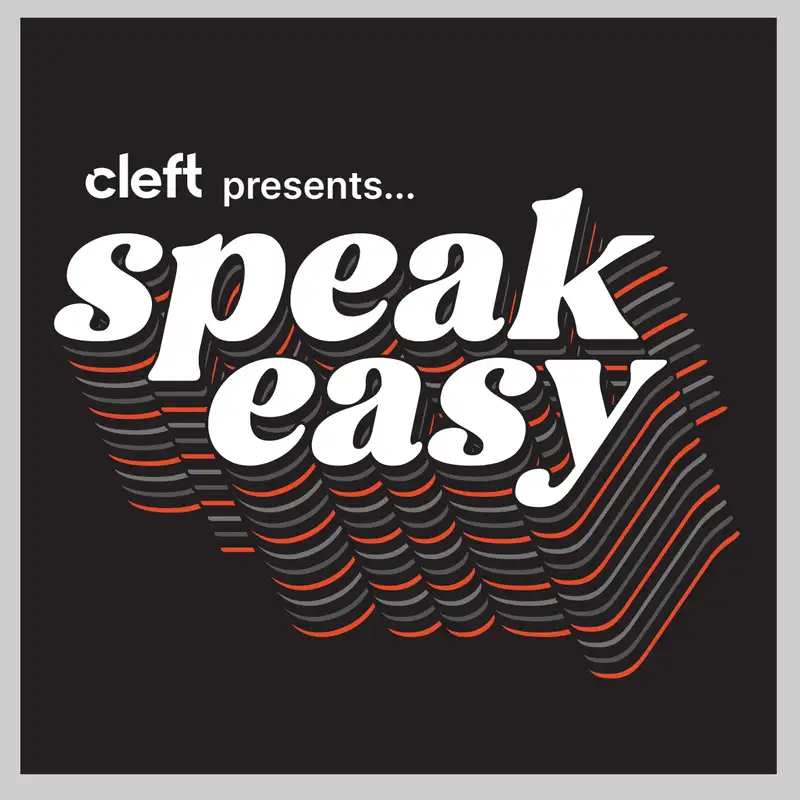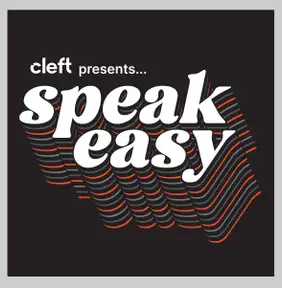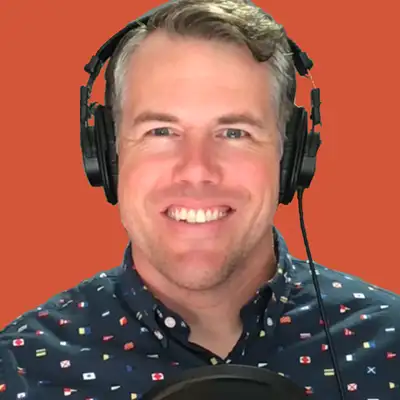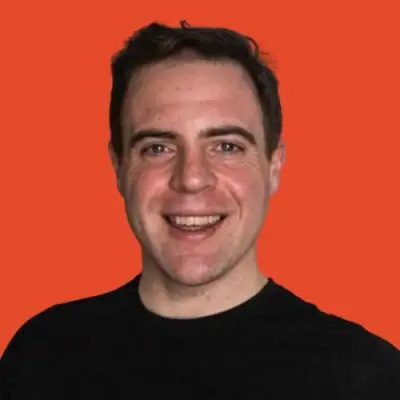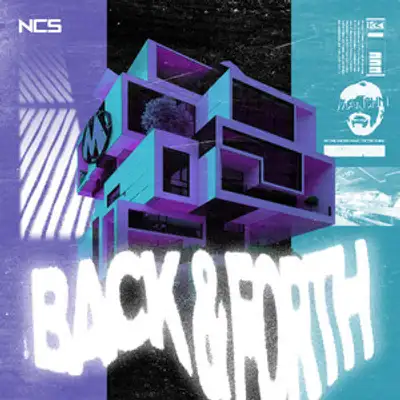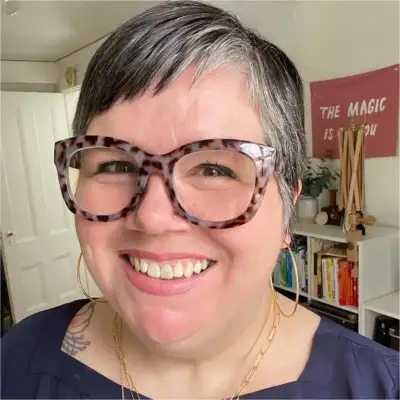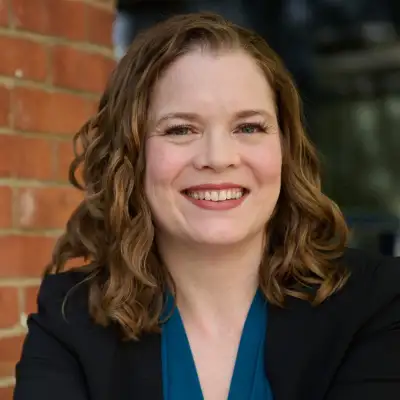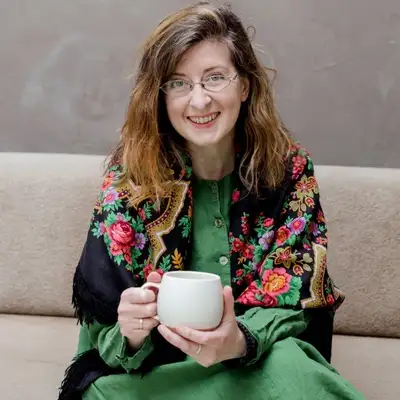Amber Beta Release!
Bonus Highlight Episode
===
Music: [00:00:00] Music interlude
Tyler Sellhorn: Hello, everyone. My name is Tyler Sellhorn and welcome to another episode of Speak Easy, the podcast where we discuss communication, productivity systems, capturing our best ideas, and how we share those insights with our future selves and others. Thanks so much for listening. Speak Easy is brought to you by Cleft.
With our cross platform applications, you can simply speak your mind and Cleft will collect your thoughts. Cleft enables you to process verbally wherever you are and send your best bits later. Today we are blessed to be learning out loud again with Cleft founder Johnny Cosgrove, operations Maven, Megan O'Toole, ADHD coach Catherine Sanders, and OKR Whisperer, Sarah Lobkowicz. Today's episode features five clips from those previous episodes centered around a theme of our products and our podcast, Neurodivergence. [00:01:00] Johnny disclosed his autistic and ADHD diagnoses in our first episode.
And Megan, Catherine, and Sarah have all built on that theme in their own ways. Obviously, Cleft's products are built by members of the NeuroDivergent community, and we're grateful for the ways that others in the community have used and influenced our products. Additionally, our episode today is celebrating two achievements.
One, we've published 20 episodes. Brum, brum, brum! And two, our second product, Amber, has gone into beta release. You can learn more at withamber. com. But as Johnny says later in this episode Cleft is for capture and amber is for authoring and the way I've been introducing it to folks rhymes with that phrasing Cleft speeds up the time from idea to draft and amber speeds up the time from draft to publish We'd love for you to try it out head over to with amber.
com. That's w i t h a m b e r Dot com you can also find that link in the show notes in your podcast player without further [00:02:00] ado. Here's the episode
Music: Music interlude
Jonny Cosgrove: And then core to a lot of that and core to my cleft journey is I also found out along that journey that I'm ADHD and autistic.
So in terms of. The way I approach things is probably a little bit different than some of your users might go for.
Tyler Sellhorn: That's why we're talking to all these different people, right? Like, you're going to be different. So let's learn about you.
Jonny Cosgrove: So let's go into the basics. For me, I have to over engineer what some people find incredibly easy.
Routines and stuff. They're not in my brain. They're not normal. They're not natural, but I make them happen. And at times in my life, I was called over organized. Um, interesting. So how I come at it, let's go down to base, not the tool and the text, but more, where am I doing stuff? When I'm on the move right now, to be perfectly frank, my mobile, I've been doing my best to reduce the apps on my phone to what needs to be on my phone.
And then what really, where [00:03:00] everything happens is at my workstation. My workstation is either at my desk or it's on my laptop. So it's either two screen. Or it's one screen and I do different types of work depending on what that might be. And for me, my multi, for anyone looking to understand the multiscreen, I've got one in front of me, which is my main.
And then I've got a total reference, which if I don't need it, it's off. It's not something that I don't need. And I don't want 16 different screens around me, no matter what a vision pro might do for me in the future. Um, it has to be simple. It has to be organized. It helps to, it helps with my flow of doing things.
Does that help set a base?
Tyler Sellhorn: Yeah. Yeah. I love that you. Zoomed out to who you are and the things that you do as centering like who you are before we talk about like things that you do You're somebody that loves to get outside and is a drone photography nerd. And someone who practices yoga and you also describe yourself as and [00:04:00] someone who lives with ADHD and autism.
And that that's even like one of the reasons why you built Cleft the way you built it with Johnny and Justin as the OGs here. Right. Like thinking about note taking and idea capture from a neurodivergent kind of first sort of way. So when you say that, what do you mean when you say, Oh, well, we want to build it so that everybody can just kind of roll up or roll out or roll in or fly in or however it is they come.
What do you mean when you say those things? What does it mean to build a knowledge capture tool that is built for neurodivergence first?
Jonny Cosgrove: Yeah. So something that's by us and for us is something that. It's not full of all the different things you can do. It's, you can capture your thoughts in a really simple way.
And that means for this, it's going to be fast. So for my brain, it moves really, really quickly. And it might be gone before I've picked up my sticky note or my marker here to actually write stuff down, which I still have. I still have all the normal stuff that people do. [00:05:00] I still have a notebook where I use.
Notes and take notes when I'm in it, when I'm meeting someone in real life, go figure for what we were looking to do was a digital field book of sorts. I suppose that's my vernacular around this, which sorry, I won't be so loud. Johnny's
Tyler Sellhorn: Johnny's laughing because I'm showing him the field notes that I'm writing little bits and pieces as he's listening so that I can say things back to him later.
So sorry for the audio listeners. I've got your Chicago made field note classic here in, in my hands.
Jonny Cosgrove: Yeah. So look, I'm, it's about doing one thing really well in the same way I'm going through my setups and that kind of thing. Most of the things I do have one way of doing it.
It's like an atomic note. Like they're there for one thing. I treat scripts the same. I treat whatever the case may be, you've got to just treat it as one thing. And if you have to update that, fine, that's it. That's it. So with bang back the cleft does one thing really well. Helps you capture and get it out to the place it needs to be.
That's what it is for me.
Music: [00:06:00] Music interlude
Tyler: I think that it's really interesting to hear you referencing going all the way back to the Yac days with Justin and I, really just trying to allow for people to do that verbal processing, and allow time for. Your executive function or Clefts executive function to filter which ideas actually ought to be sent on to others, right?
It might've been just for you to think out loud, something, someone, or whatever is listening. Right, and is going to reflect back what they heard you saying, right? And, Cleft is way better than a rubber duck, right? Because Cleft actually, transcribes your words. You can have all of those words right there in the transcript.
If there was something special in there that you said and need to pull out, verbatim what it was that you And it's also [00:07:00] going to reflect back to you what it heard you saying, it's going to summarize and organize those thoughts into a note that would be easier for somebody else to catch on to.
It's that assistive technology. It's that companion. It's that sidekick to, your thought process and helping you to Power up, Mario is great, right. When he first appears on screen, but as soon as he mashes that flashing question block, And out comes, the power mushroom, Super Mario is even better. And that's what we're trying to do with Cleft. We're trying to be the power mushroom for you. As the hero or heroine of your own story, right? We want you to be able to walk around with an extra life
You've got, what you need to be able to succeed, by having a partner that is listening, that is trying to figure out what it is exactly that your idea was. And yeah, now we want to take that idea and we want to send it off [00:08:00] someplace else, right? It might be notion.
It might be obsidian. It might be, some other end point. What are some of the end points that you've heard people, like sending those thoughts onto, right? You obviously, we talk about inside of our own team, right? Sending it into Slack or into GitHub, right? All these different places that, that these thoughts and ideas and insights might be, you but it sounds like what I'm hearing you say, Jonny, is that there's something else brewing for Cleft where we're going to send things in the future.
Jonny Cosgrove: Yeah, well, number one, check the cookbook. That's where all, a lot of the, a lot of the straight, I want to download a shortcut. I want to get his app to do this, that, or whatever. That's already in there on the website. One of the, one of the dreams we had at the beginning of starting this all was building software and products that didn't just help people, but actually became things like workplace accommodations became things that people really, you know, became part of the system. And one of those dreams has already come through in terms of they're the requests that we're starting to get through some people already. And with that, we're listening to our customers and [00:09:00] people love Cleft. People, people love that we've built a digital field book, notebook, whatever you want to call it, it has a purpose, and that's to help you capture it. That's what we built Cleft for, and we didn't want to go beyond that in terms of making it into something it wasn't supposed to be. I've had over 200, 200 people have me face to face promise this will not become an everything app, and we don't want to do that. So, that, sort of a sneak peek, and this might be out by the time we get out there but we have been working on a new product. What Cleft is to capture, Amber is to authoring and we've really heard a lot of people who want to have a tool that helps 'em write better. And to put it very, very simply and that's go, that is something that our close beta is going out quite soon on that. But it's got the same essence as Cleft had, which is, this is, this is a writing tool that doesn't stress you out, that isn't about overloading you, that's about more, more writing, less executive function, dysfunction and that's the number one come from our users and what they want to do with that.
Tyler: Okay. [00:10:00] I love what you just said that what, what Cleft. Is say that again for us. Cleft is to
Jonny Cosgrove: What Cleft is for capture, Amber is for authoring.
Tyler: what Cleft is for capture. Amber is for authoring. I love that phrasing. I'm a sucker for some alliteration and assonance inside of, like brand names and all that sort of stuff. So I'm very excited to be helping our authors. Obviously we've been talking about using The transcript tools that are exist inside of our workplace software to the author some better, like post call meeting notes, right?
And just stuff there. But what else are we seeing people do? What is it that we want to see people accomplish when we're thinking about Amber being for authoring?
Jonny Cosgrove: I was to try to sum it up. It's that everyone's, everyone's got a writer in them. And that was one of the big things behind Cleft originally was it's to help those who [00:11:00] might verbally process as opposed to click and clack quite the same way. That was a big driving point for this was just to bring it back to simplicity.
And we have a lot of people who are writing with where they were trying to do more with what Cleft is actually for, and they wanted someone to send their notes or send their thoughts. didn't want to go and venture into the personal knowledge management phase. We were really just focused on saying, look, there's loads of stuff out there for that. I still use Obsidian. I've got it open here over beside me for looking at something else for later. Okay. All these tools have a place, but where Justin will definitely talk about this more in the future. We, I'm sure, you know, we've got to get him on here and have a, have a, have a chat about this. I know he's really wants to get in and share that, which is we've got people who have a process.
Cleft is for the capture. And that's the starting point. isn't for your live collaboration. I've just mentioned, we use Google docs. We haven't stopped using Google docs, but my primary writing place, and I've only got the tool relatively recently
A lot of the fun stuff that's coming and it's sort of become my go to writing [00:12:00] editor which was not the plan for me I was looking at it for different use cases but I suppose just to step it back up It's for writing. It's for authoring. It's for having a space that you can, I know we haven't got the, we haven't got a share screen going here, but you've got an editor in front of you. That's lovely and clean. It's native, it's local, and that's a big one to shout out about. This is, this is offline, local, and that includes the files. Because that was one of the other big requests that was coming through from people, was making sure they can get access to it like Clef does, and bringing these places all over the place, you know?
So everyone, sorry, my point is, everyone's got a system, and we wanted to make sure you didn't have to learn or break your system. This slots in.
Music: Music interlude
Tyler Sellhorn: yeah, nerds for knowledge definitely make it easier to be a knitting nerd as well. So that's fantastic. I guess I'm curious to like, go back a step. Where you're trying [00:13:00] to do this, like knowledge management, but it's oftentimes like you mentioned web clippers and read it later type stuff, and I guess maybe how do you do the brain
clipper? Right. Or the grow this idea
later stuff. Like tell us about how you capture your own
thoughts
Meighan O'Toole: So you might know of this tool called Cleft.
Tyler Sellhorn: Yes. Speak easy, brought to you by Cleft. Here we
Meighan O'Toole: I mean, I am a super fan of Cleft, but prior to Cleft, I would use, you know, audio. It just was like this word salad and I have ADHD and so then looking at this like giant transcript of, you know, my brain dump was just not helpful. And then I discovered Cleft.
I don't know. What was it? Six months ago that you guys soft launched. I found it through David Pierce's newsletter, the [00:14:00] verge from the verge of his newsletter called the installer. And I was off and running. I mean, I just was like, holy moly. Like, all I have to do is just say what is ever on my mind.
And Cleft then wraps it into, a to do list or I, when I launched a workshop slash product in the spring, I was able to say everything that I knew I needed to do for the launch. And it put it all together and then I just dragged it right into notion and I had all of my tasks to do so really I mean you know when it comes to quote unquote knowledge management for me it truly is about saving time right like I don't.
I'm constantly thinking about how can I be more efficient and it's not to work like it's not that whole like bro let's like rise and grind, right? It's you know what? I just want, I want to spend more quality time with my [00:15:00] family. Like I don't want to work.
Tyler Sellhorn: Rise and grind your coffee. Right. And then enjoy that cup with
your
family
Meighan O'Toole: Totally, totally. So yeah, that's where, for me, Cleft is, works really like hand in hand with web clippers. What was the other thing that we were talking about? Oh, read it later. So I
use Readwise, you know, so those are like my core tools that really help me capture knowledge. And also like for a lot of us, I'm a service provider.
I help
small businesses. With their technology and I'm able to capture information in a way that I can then share with them.
Tyler Sellhorn: So shout out to, to to David, for calling us the best AI voice notes I've tried period. So thank you for David saying that. And also for you clicking on that link, I'm sure there was a hyper link out in, in, in the installer, but maybe you're listening to us today.
Having brought, been brought to [00:16:00] us by David as well. But we're really grateful for you giving it a try and also like seeing the value
yourself. Right. Because, you know, it's one of those things where we're trying to help people like yourself. Johnny and Justin are identified neurodivergent people and like you mentioned your ADHD and, thank you for, being willing to be vulnerable and disclose that here on the podcast Johnny, he'd talked about it before, but like it was His first time like publicly declaring that was on our very first episode.
So these are things that are very important to us. And there are a part of the story of Cleft is the brain chemistry of, individuals like, like myself, I'm not identified, but there's definitely times when I have that blinking cursor
syndrome. Right. And I, that's the place where, Cleft helps me the most. Is when I have an idea and I don't have the fingers
to type it, but I do have the voice to say it,
right? And I think that's the key ingredient that I [00:17:00] find being most useful about Cleft is just helping me to get from that negative one to zero or zero to one space where it's the fastest voice to draft. Kind of solution that I've
found, right? I've tried other apps. Like you said, like dictation and those sorts of things before. I don't want all of that transcript. I want the summary, right? That's why it's so useful. Well, I highly recommend if you haven't yet subscribed, please do because you just mentioned appending earlier, right? That's one of our paid features where like you've got a note that's kind of rolling through things and you can just kind of keep adding on to it, right?
That's a really great way to use Cleft is to say, okay, I wasn't done with that thought
actually. And so I'm going to
add on to it right with another recording and another summary, right? And you know, getting things together
Meighan O'Toole: Yeah. And one of, you know, one of the things you brought up when you were talking about Jonny Cleft Founder being neurodivergent when he and I first connected on an onboarding call for Cleft one of the things that we shared that I have [00:18:00] found such a relief with Cleft is for many of us that have ADHD this is a little bit of a tangent, but there are a lot of people that refuse to say ADHD.
They say ADD because they don't like the hyper activity. They don't want to be associated with that. But the reality is it's not that you're hyperactive, like physically, it's that your brain doesn't stop. Right. So for those of us who are small business owners, entrepreneurs, or have high side hustles.
Our brains are always going, they just don't stop. And so one of the things that Johnny mentioned and I was like, wow, that is so true is you just put it in the Cleft and it's like, your brain can take a sigh
because it's no longer just rolling around in there. You've got it. And now it's actionable.
Tyler Sellhorn: Yeah. I think, the phrase that I've heard him say before is it's a release valve, right? So often there can be a bit too much right there. That hyperactivity that you're
talking about, like can be, adding pressure. [00:19:00] Slowly over time and, Cleft and also getting it out to
Or whatever your repository happens to be is so pleasing to that kind
Meighan O'Toole: yeah. I mean, that's one of the things that I talk to my clients about all the time is the cognitive load that we have from all of the information that we are carrying around in our heads, right? And when we carry that information, if we have a team or an assistant, they're then relying on us. So knowledge management helps in that way too, that it captures that institutional knowledge in a way that you can just, you can release it.
You can let it go.
Music: Music interlude
Tyler Sellhorn: Catherine, thank you for sharing your knowledge and expertise with us. We're curious, what is it about divergent thinking that makes it harder for divergent thinkers to use traditional productivity methods?
Katherine Sanders: The divergent [00:20:00] thinking That is really common with people with ADHD and autism. Literally means, not in a straight line. So, I don't know if you've ever had a conversation with a team member or a family member who has ADHD and there are multiple side quests, there are brackets in the middle of sentences, sometimes several of them, and we kind of access Different solutions and ideas all at the same time. And for that kind of thinking style, traditional thought capture and knowledge management is really difficult because that's a very linear way of thinking is literally not divergent at all. So lots of people who are really clever, really smart, really creative.
When you give them a typical productivity or sort of management system. They feel really stuck really quickly because, but we have another question, but what if this, and can we clarify that? Wait a minute, [00:21:00] this is relevant to this. And when you try to shoehorn that kind of brain into a linear system, It just doesn't work and everybody ends up frustrated.
So that's why divergent brains need a different way to do things, which is where something like Cleft comes in.
Tyler Sellhorn: Well, thank you for mentioning Cleft. This is obviously, this is presented by Cleft and we, we have just to, you asked the question do you have any, team members or family members that, well, Justin and Johnny are identified neurodivergent individuals and that's part of the genesis of why cleft and why is cleft the way it is. And, you know, it's really intended to be an accessible tool for people who do not have those linear pathways that are, more broadly understood and, comprehended.
As we express these things as you start saying things like for myself, I am not identified, but I definitely am somebody who puts parenthetical statements [00:22:00] in the middle of things. And so I guess maybe that's where I want to invite you to speak on a little more is like, how do we manage.
Our brains in ways that will allow us to interface with the more traditional ways of thinking as, neurodivergent individuals or flip it around like, how do we invite the contributions of neurodivergent people depending on who we happen to be as listeners?
Katherine Sanders: Yeah, I mean, this is great because obviously I work with a lot of companies, a lot of professionals and I'm often brought in when people are struggling in their role at work because they have undiagnosed neurodivergence, which makes them great at their job, but also not great at their job.
And I'm quite often I'm kind of communicating both ways. So if you're somebody who's neurodivergent. And you're in a system which is designed in a linear fashion. The first thing obviously is to understand how does your brain work? [00:23:00] What particular strengths and challenges do you have? And one of the first things I do, or ask clients to do is think, what's your preferred processing modality?
So, some people are very visual. And they are people who tend to gather sticky notes and whiteboards and diagrams and all of this. They have little lists everywhere. There are people who are verbal processors and those are the people where you ask them a question. They take three steps back to begin from where the conversation needs to begin for them.
There's a couple of extra things added in and then it goes slightly in a different direction and then it comes back. And you think, okay, that was amazing, but can you answer that question? But they needed to do that to answer the question. So that's a verbal processor. They literally solve the problem as they talk.
Tyler Sellhorn: Guilty guilty, right? I'm a podcaster. Yes, exactly.
Katherine Sanders: Yeah. I feel like that should be like, um, one [00:24:00] of those things. If you're going to do a podcast, can you verbally process a thought? Because that's what makes it interesting for people. But there are also conceptual thinkers and people who need to have the big picture.
You're not going to be one or other, and there will be different areas of your life where one or the other is more accessible or more relevant. But quite often in in the workplace, we get a lot of verbal commands. And the irony is many people who are verbal processors cannot process auditory.
instructions in the same way. So in the classroom it would be a teacher reading out a list of questions and the kid who's like a verbal processor in chatty Cathy is thinking, what was question one? I forgot. I can't do it. And yet bosses are giving people instructions in that way. So there are ways to tailor your communication and your support for staff and vice versa.
If you know that you're a verbal [00:25:00] processor and you have a boss who doesn't process auditory information you can use any kind of tool, but you can find a way to summarize your thoughts and then present it to them in a simple way that. It is recorded for both of you, so that you can You're both keeping track of the conversation.
So that, that kind of stuff is really simple to do these days. It's so easy now for just about anyone to implement that at home or at work.
Music: Music interlude
Tyler Sellhorn: I think there's something there to quote our CEO, Justin Mitchell, he's a big believer in technical spaces, this idea of rubber duck debugging, um, where you figure out the problem that's there just by thinking aloud about the logic or the workflow that's there, and you don't even actually have to query the team.
It sounds like that's something that's [00:26:00] happening for your clients as well. As they're thinking out loud for themselves is. They've been prompted by you or by your materials and they think aloud to themselves and they're attributing that success to you, but it really was just their own brains, like taking the time to do the neural processing of getting their words out, I guess maybe tell us some more about supporting that process because that's definitely something we at Cleft want to learn more about.
Sara Lobkovich: I'm unique in that I work with everything from Fortune 500, large enterprise, multi thousand person goal you know, it's always about the linkage between group goals and individual performance is often the question with large enterprise. So I work all the way from large enterprise to, I work with solos and individuals because my year is very cyclical enterprise needs certain things, certain times, and then individuals need certain things at other times. So I get to watch all of this [00:27:00] human behavior in all of these different places.
The thing that I observe the most in my coaching is I ask a couple questions, people do their verbal processing, and then at the end of the session, they say, I don't remember the last time I took time to think. I'm fascinated by our perception of time because my perception of time is not neurotypical.
When I hear clients say, I can't believe that hour is up, that felt so fast and like we had all day, so it's just so cool when we can create thinking spaces for people, especially I love when my CEOs say, thank you for giving me time to think. Cause I'm like CEOs thinking is money and I'm motivated by other things, but my CEOs, you know, if they get time to think and do 1 percent more thoughtful work that has serious economic consequences.
So [00:28:00] just, I just, I also just finished teaching a new cohort of coaches. So I'm really thinking about coaching behaviors and nurturing, simple, learnable skills. Around asking one simple question, letting people verbal process, coaches reflect back what they hear ideally, and as close to the client language as possible.
And then people get to decide what of what I just heard is important to me right now. You know, the client makes the decisions. I just described a professional coaching session, but anyone can do that. That's something any leader can do, any colleague can do, any spouse can do, any parent can do.
That practice of a simple question, let someone talk and capture what they're saying, not be planning what you're going to say next. Because when we're in that mode, our job is just to reflect. [00:29:00] what they say so that they can hear themselves.
Tyler Sellhorn: so Sarah, I am the spouse of a therapist. And so I hear, you know, you rhyming with so many things, uh, that, that are a part of what's, what happens for me in my closest relationships.
And I guess maybe the thing that I want to invite you to spend some time thinking aloud with us is when we start bringing up these ideas. Sometimes we're not sure that we wanted these things for ourselves already. And I guess maybe, how do we take what's being reflected back to us and then make it better?
Very often, we might just be saying how things are right. But I'm interested in the work that you've done around objectives and results and all of those sorts of things as well, where it's like, okay, how do we translate these things that reflect what's happening now and then make plans and strategies towards [00:30:00] making it better?
We've listened to the other person or we've had ourselves listened to. Right. But now what do we do with those things? Where does it go? How do we get it into a system that gets better over time?
Sara Lobkovich: I think part of it is evocative questioning. So the questioning that we use in coaching. I am like the least woo woo person on the face of the planet.
But my questions are, let's physically put yourself in your future. Envision yourself at the end of your goal cycle. Close your eyes, stand at the end of your goal cycle. Where are you? What season is it? What month is it? Now open your eyes and look around. Tell me what's different. So we do visualization to help understand, if I just ask you, where do you want to be in three months? You're going to answer with your brain. You're going to answer with your intellect or with your thoughts. Where if I say, let's put you in your future, I want you to think about where you are, when you are, what time of year is it, what's happening with the weather.
Look [00:31:00] around, tell me what's different. You might surprise yourself with what you offer up. Like you might surprise yourself with what you say, because those questions evoke more than just our immediate conscious thought. Those questions tap into our deeper purpose, our wishes, our hopes. And so that evocative questioning is part of it.
And then the other part of it is when we're talking, We're not processing, we're processing in terms of what's coming out of our mouths, but we're not retaining what we're saying. So that is another thing, whether it's coaching or tools like Cleft, you know, having a listener. And that's the cool thing about your technology integration with Cleft is your AI or your language model work is a listener that can reflect back to the person and So that they can hear what they're [00:32:00] saying and again What they say might surprise them or what they've said might surprise them as far as getting to nitty gritty of goals. I am a very pragmatic coach.
I'm very solution oriented. I know where we're going when we're creating your OKRs. If we're creating, Objectives and key results for you. I know exactly what the structure of an objective is, what the structure of a key result is, and you don't have to worry about that. I'm going to listen and reflect what I hear so you can think about your business, not the mechanics of goal setting.
But I do that by following some patterns and having some practices that we do every time. So it's similar questions, similar note taking, similar note preparation to feed back to the client, and then similar guidance on how we get from idea to finished OKRs.
Music: Music [00:33:00] interlude
Big thank you to Johnny Cosgrove, Megan O'Toole, Catherine Sanders, and Sarah Lobkowicz for their thoughts and their ideas surrounding neurodivergent thinking and how Cleft interacts with that. It's really grateful to have all of you learning out loud with us today and thank you for listening.
Tyler Sellhorn: Speak easy is brought to you by Cleft. With our cross platform applications, you can simply speak your mind and Cleft will collect your thoughts. Cleft enables you to process [00:34:00] verbally wherever you are and send your best bits later. Check us out at cleftnotes. com. That's C L E F T N O T E S dot com.
